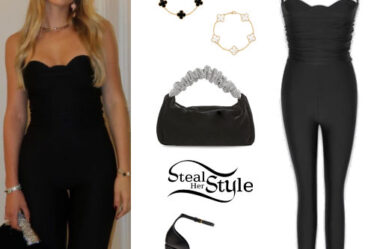
In a still-challenging funding environment, DTC brands are getting creative in how they pursue growth.
Case in point: Digitally native made-to-measure menswear brand Knot Standard is merging its retail business with Billy Reid, the CFDA Award-winning ready-to-wear brand known for its Southern take on preppy Americana, in a deal that closed this month, the companies confirmed to The Business of Fashion.
With the merger, Billy Reid will immediately take over Knot Standard’s eight retail stores, making its ready-to-wear offering available in a combined total of 20 locations. Knot Standard will also provide its AI-powered made-to-measure software — which includes measurement and ordering tools it also sells to retailers like Brooks Brothers, Nordstrom and Bloomingdales — in all those locations. The combined business, which will operate under the Billy Reid name, is expected to bring in $45 million in sales this year, and at least 5 percent margins on the basis of earnings before interest, taxes, depreciation and amortisation. Billy Reid will hold a majority stake in the combined business.
Knot Standard’s clothing business was small, but healthy — last year, it sold $15 million of worth of product and was profitable — but the company saw more opportunity in its software unit. As far back as 2022, it sought to sell off its retail business, but was met with reluctance from investors, and it turned down at least one offer because the potential buyer didn’t have clear plans to grow store sales and profits. Meanwhile, Billy Reid, a client of Knot Standard’s tech arm, was also raising money to expand its own retail footprint and increase marketing.
The two companies decided to join forces. Knot Standard’s software business will become a separate firm, with revenue projected to double to $7 million this year as it adds new clients like online menswear sellers Jack Victor and Mizzen+Main.
“This merger represents more than a business decision,” Matthew Mueller, Knot Standard’s founder and chief executive, said in a statement. “Our combined strengths will not only elevate the made-to-measure experience but also expand our reach.”
It’s the latest example of how fashion start-ups are exploring more unconventional paths to grow their businesses as funding remains sparse and acquisitions at desirable valuations are, for the most part, on hold. In 2023, the number of global deals where VC firms sold off their DTC brands dropped more than 20 percent year over year, according to PitchBook.
Higher interest rates have kept investors’ belts tight and valuations are much lower than they were during the e-commerce boom of 2021. Also, the strategics that typically fuel growth through acquisitions, such as Gap Inc, VF Corp and Victoria’s Secret, have their own cash problems and likely can’t afford the premiums of buying smaller companies. Unprofitable start-ups have fared the worst, with brands like intimate apparel maker Parade selling its business for next to nothing in 2023 to an obscure holding company.
The choice to merge, meanwhile, brings unique benefits. The two companies can exchange assets for equity without requiring cash, while combining operations can cut costs and improve margins. Plus, each party can trade expertise. In this case, Knot Standard will increase Billy Reid’s made-to-measure business, and making Billy Reid’s better-known ready-to-wear collections available in more locations will grow revenue overall without the additional costs of new leases.
“You will see more trades that look like this, where two parties look at each other and say our brands are complementary, our channel strengths are complementary, our product portfolio is complementary and our audiences line up really nicely,” said Brandon Yoshimura, a director at investment bank Solomon Partners, focusing on next generation brands.
But merging as a workaround to the traditional acquisition route has its own challenges. A combined business between two similar sized companies may be too small to make the tie-up worthwhile beyond modest cost cuts. Women’s shoe maker M.Gemi has explored mergers with other DTC brands, including talks with men’s sneaker seller Koio in 2022, but hasn’t found a partnership that offers the type of revenue growth it’s looking for, M.Gemi’s chief executive Cheryl Kaplan told BoF.
Still, the chance of success is higher if both brands are clear on the value they bring to the merger, Yoshimura said.
“You need to make sure incentives are aligned and people are working towards the broader objective versus operating little fiefdoms,” Yoshimura said. “They have to both agree that what they’re getting in the other party is valuable versus what they’re giving up in their existing business.”



